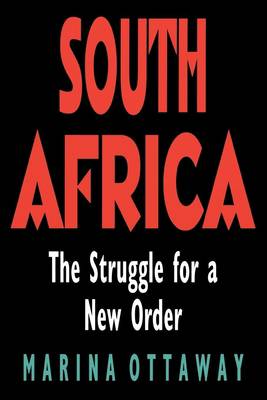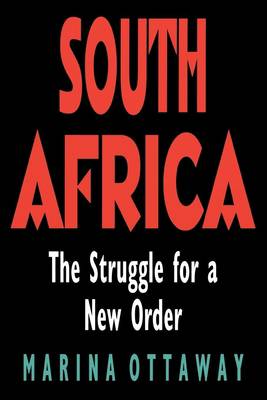
- Afhalen na 1 uur in een winkel met voorraad
- Gratis thuislevering in België vanaf € 30
- Ruim aanbod met 7 miljoen producten
- Afhalen na 1 uur in een winkel met voorraad
- Gratis thuislevering in België vanaf € 30
- Ruim aanbod met 7 miljoen producten
Zoeken
Omschrijving
The unbanning of the African National Congress and the release of Nelson Mandela in February of 1990 cleared the way for negotiations toward a new, post-apartheid political order in South Africa. But three years later, the main parties have made little progress toward a compromise, while violence escalates in the townships. In this revealing study, Marina Ottaway examines the new conflicts emerging in South Africa, the factors influencing them, and the probable outcome. She shows that the black-on-white conflict that has made the country a pariah in the past has evolved into a much more complex state of affairs and explains that the transition is likely to take an unprecedented form. Beginning with a brief history of the events since Mandela's release, Ottaway provides a vivid account of the evolving conflict over apartheid. She discuses the complexity of conflict resolution in a country where internal and external currents work against each other, and where the struggle for power transcends any strides toward peace. Ottaway thoroughly addresses the issues involved in South Africa's transition from apartheid. She explains that the abolition of the pervasive system has more far-reaching implications than originally thought. South Africa explores the effects that the international climate of the 1990s has had on the county's transition. Ottaway contends that the international community rejects apartheid but is unsympathetic to black demands for redistribution, and has condemned the white government's vision of separate development but accepts ethnic nationalism as inevitable. She describes the dramatic effects the new world order has had on South Africa and assesses what those changes will mean to the country's difficult transition.
Specificaties
Betrokkenen
- Auteur(s):
- Uitgeverij:
Inhoud
- Aantal bladzijden:
- 264
- Taal:
- Engels
Eigenschappen
- Productcode (EAN):
- 9780815767152
- Verschijningsdatum:
- 1/04/1993
- Uitvoering:
- Paperback
- Formaat:
- Trade paperback (VS)
- Afmetingen:
- 153 mm x 236 mm
- Gewicht:
- 362 g

Alleen bij Standaard Boekhandel
+ 84 punten op je klantenkaart van Standaard Boekhandel
Beoordelingen
We publiceren alleen reviews die voldoen aan de voorwaarden voor reviews. Bekijk onze voorwaarden voor reviews.











